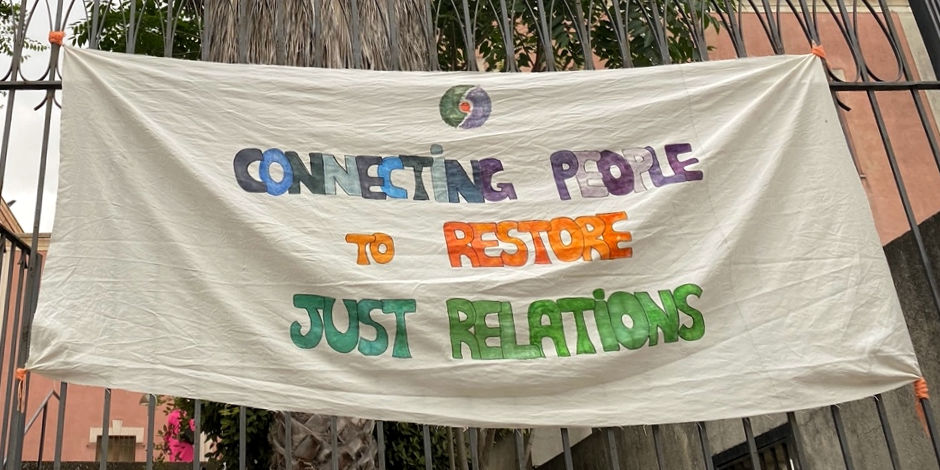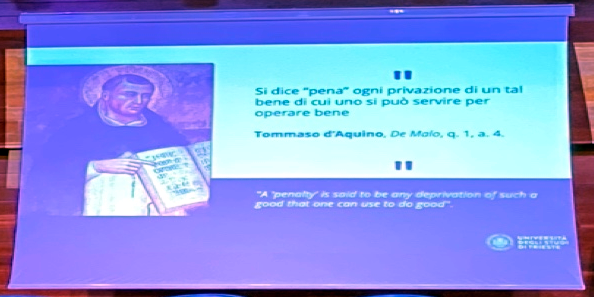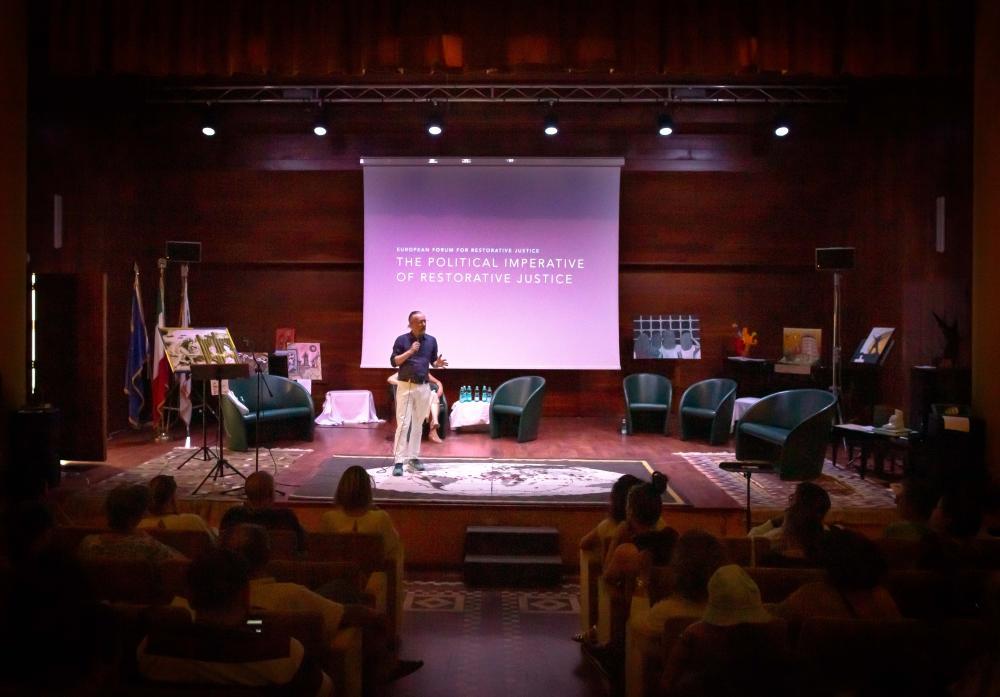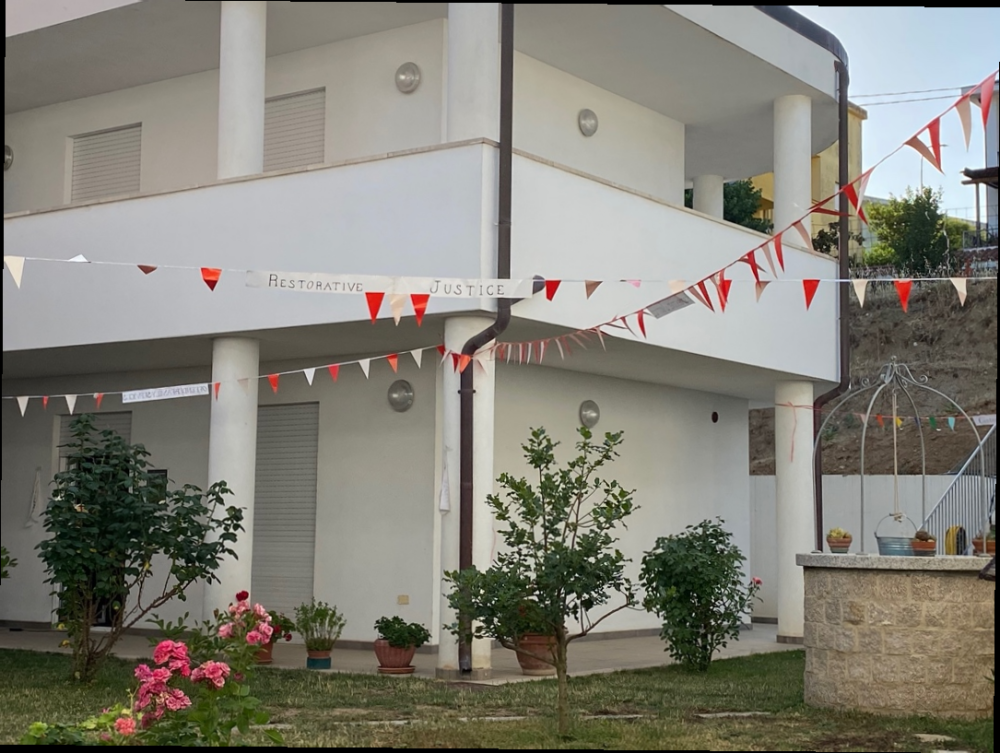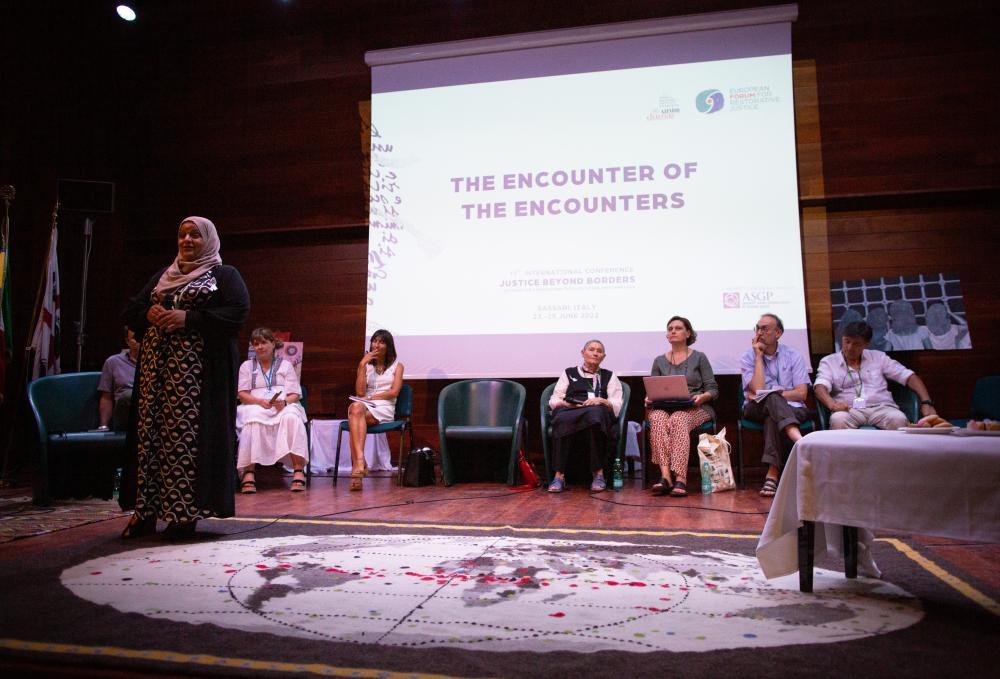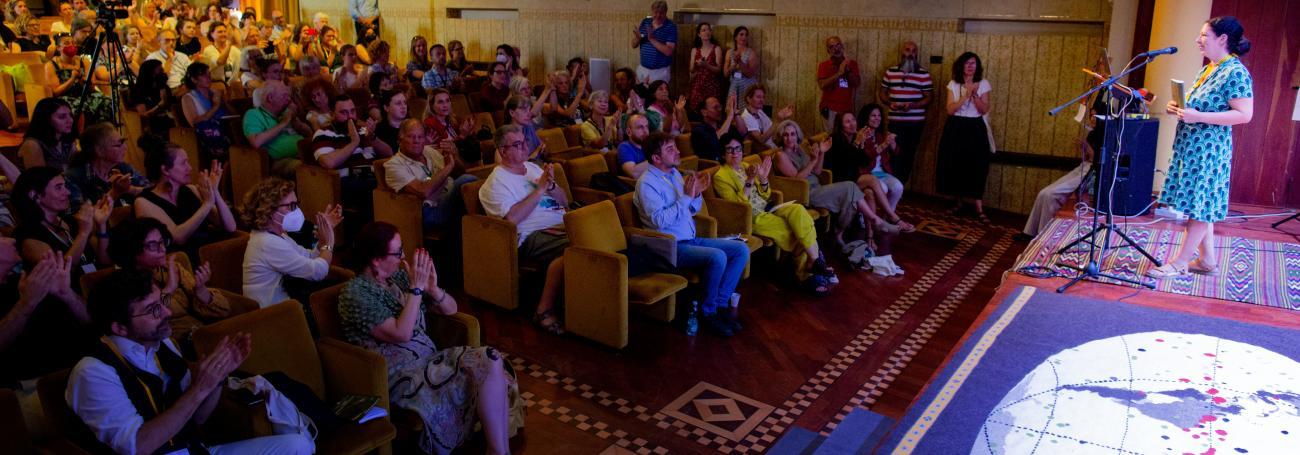
From June 23rd to 25th June 2022, the European Forum for Restorative Justice’s 11th International Conference entitled ‘Justice Beyond Borders: Restorative Connections Through Space and Language’ took place in Sassari, Italy.
The conference themes were space and time, language and narrative, with the aim of understanding together how a restorative approach can contribute to lower suffering and fewer injustices being experienced by people. The programme was very rich and consisted of five plenaries and a wide variety of workshops including presentations, panels, dialogues, training and testimonials by different professionals in the field of restorative justice.

